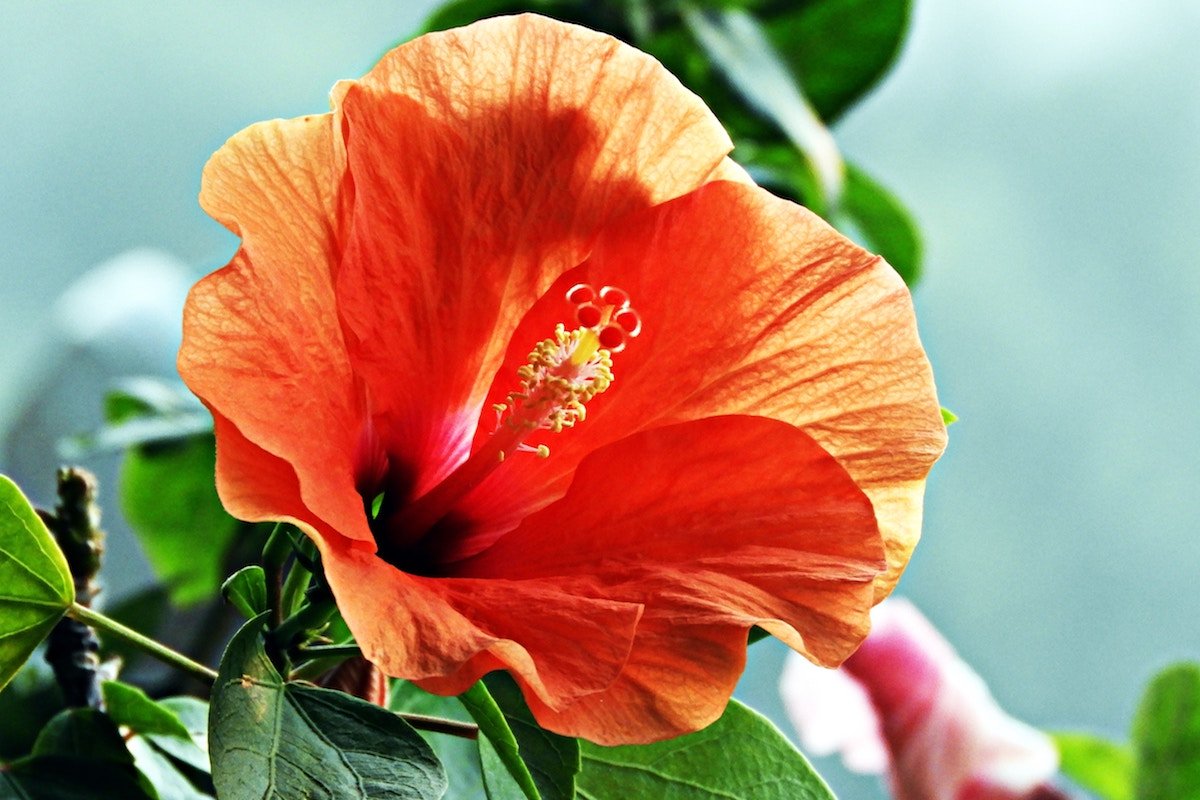
Hibiscus has long been a favorite ornamental plant. Few can rival its stunning beauty and bright colors. But the plant can do a lot more than just look good.
The flowers are used to make a popular drink in Egypt called “karkade,” while other parts of the plant are used to make jams, spices, soups, and sauces. The flowers also have powerful, exciting benefits to the skin, including the ability to firm and lift its appearance.
Background on the hibiscus plant
Hibiscus is a genus of flowering plants in the mallow family, with several hundred species native to warm, tropical regions. Also called “rosemallow,” hibiscus can be grown indoors or out.
Flowers are large and trumpet shaped, with five or more petals. Colors include white, pink, red, orange, purple, or yellow. The extract is most often taken from the red flowers, also known as “roselle.”
How is hibiscus used?
Many cultures enjoy hibiscus tea, made from the flowers and served both hot and cold. In addition to Egypt, West Africa, Mexico, India, and Brazil enjoy the tangy flavor of hibiscus tea, which is also a favorite in Jamaica and other Caribbean islands.
Dried hibiscus is edible, and may be used in salads, as a vegetable or flavoring, or as a delicacy. Certain species are also used as a natural source of food coloring.
Internal Health Benefits of Hibiscus
Traditionally, hibiscus was used for treating loss of appetite, colds, upper respiratory tract pain and swelling, stomach irritation, as a laxative, and as a diuretic.
More recent studies have suggested that hibiscus could have application in some of today’s health problems. Animal studies suggest it may help lower blood pressure. Quality human studies are still needed, but small human trials have also shown the plant’s potential in lowering blood pressure.
antioxidant properties
Hibiscus also has antioxidants similar to those found in bilberry, cranberry, and red wine. More research is needed, but these may prove effective in other health applications, such as helping to protect against disease. Already the extract has shown some potential in reducing bad cholesterol.
The tea is also used today to relieve problems with indigestion, to treat urinary tract infections, and to relieve kidney ailments. The fruit acids in hibiscus are thought to work as a laxative, where other compounds in the plant may soothe stomach spasms.
hibiscus Benefits to the Skin
Hibiscus has a sort of magical reputation in skin care because it is a natural source of alpha-hydroxy acids (AHAs). Chemical forms of these acids can be overly harsh and damaging to the skin, but natural sources such as those in hibiscus can help provide the same benefits without the harsh drawbacks.
AHAs are known to help exfoliate, control oily skin and clogged pores, all of which can encourage fresher, younger, and smoother looking skin. They also increase moisture and firm your skin's look.
an anti-aging powerhouse
On top of the AHA activity are the antioxidants, which are called “anthocyanocides.” These not only protect the skin from environmental stressors, but have properties that help pores to appear smaller. They also can help with sensitive skin.
Finally, the plant has a high mucilage content, which makes it a great skin moisturizer. Combine all these properties together and you have a wonderful anti-aging ingredient that with regular use, helps skin to appear more supple and flawless overall. Plus it has a lovely, natural scent.
With powerhouse ingredients like this one, why would you ever want to use harsh chemicals?
Try It!
Hibiscus flowers are used in many of our products, which provide not only moisturizing properties, but anti-aging benefits as well. With ingredients like hibiscus working on so many levels in your skin, you're sure to see amazing results with regular use.
You can find it in our Coconut Body Oil, Anti-Aging Facial Oil, Anti-Aging Eye Cream, Herbal Facial Oil for Normal and Combination Skin, and Herbal Facial Oil for Oily Skin.
Source:
“Hibiscus,” Aurorahealthcare.org, http://www.aurorahealthcare.org/yourhealth/healthgate/getcontent.asp?URLhealthgate=%22108309.html%22.
The following post Hibiscus for Skin, the Natural Firming Plant was first published on Annmarie Skin Care.
Do you grow hibiscus flowers where you live? How do you use the plant?